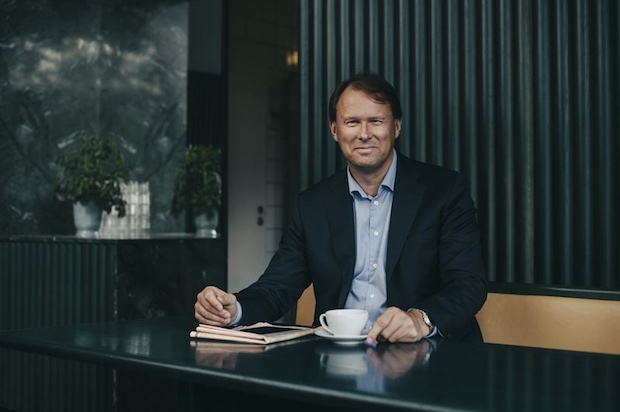
Bluebay’s CEO Erich Gerth: Merger risks and industry trends
Erich Gerth, CEO of Bluebay and head of RBC Global Asset Management EMEA-APAC, on the convergence of alternative and traditional asset management, trends pushing the industry towards consolidation and why corporate culture keeps him awake at night.
When Erich Gerth joined fixed income specialist Bluebay at the end of 2012, he was happy that he joined an asset manager that at an early stage had expanded from its hedge fund origins to a business that combined both alternative and traditional asset management – something that is more common today.
“When I started, the alternative heritage of the firm was a differentiator and I think it’s very important that we ensure we keep our heritage from alternative asset management. If we didn’t, we would just be another long-only manager,” says Erich Gerth, CEO of Bluebay and head of RBC Global Asset Management EMEA-APAC.
At the asset manager, he has built a single investment platform to ensure that everyone is working together. “What I’ve seen at other places is that the alternatives people have been cornered off and don’t want to mix with everyone else. At Bluebay, it’s essential that everyone is involved in everything we do and that has enhanced the debate internally. That cross pollination is very important,” he says.
Despite the fact that institutional investors in recent years have been searching for fixed income replacements rather than looking to invest in fixed income, Erich Gerth says the company hasn’t been too affected over the past years. “Fixed income is such a big market and we’ve benefitted from having a large platform. It has, of course, been tough in investment grade but there’s a lot more to fixed income than investment grade,” he says. What has been a bigger challenge is the fee compression that has been hitting the industry.
“The fee compression is a very fundamental issue and it will change the profile of the industry,” he says. On top of lower fees, the industry is also facing a number of trends that are driving costs, such as regulation, ESG and technology. “The risks related to these trends are so big that the costs are not optional. You need to be on top of these issues. It’s a dynamic that we didn’t have 10 years ago and together with the fee compression, it means that mid-sized firms will have a very difficult time going forward,” he says.
This dynamic of lower fees and increasing costs was also a driver for a tighter relationship between RBC and Bluebay. The Canadian banking group RBC acquired the asset manager already in 2010 but until recently, it was always an arms-length relationship. Last autumn, however, the asset manager officially became RBC Bluebay. “I looked at our business and even at USD 80 billion in assets under management and even if we were growing, I saw a need to work closer with RBC due to the trends I outlined earlier,” he says. He highlights the fact that there was no need to integrate investment teams as RBC is very much an equity business focused on global, European and emerging markets whereas Bluebay is a fixed income specialist. “The mess in asset management mergers is when you need to integrate investment teams with different cultures. Here, we didn’t have to do that. It was totally complementary businesses,” he explains and adds that mergers in asset management globally are difficult to get right as it is all about individual talent.
Managing the corporate culture is therefore where Erich Gerth spends most of his time and it is what keeps him awake at night. “You of course need decent products, you need to be in the right markets and you need financial discipline but what makes or breaks a business is culture. We need to create an environment that makes people succeed,” he says. Asked about the future of the firm, he says it is dangerous to declare victory prematurely. “I think it will take years until we’re fully integrated and we can say it’s business as usual, so I need to keep my eye on the ball and ensure everything is working. The primary focus is making sure that the culture is there and of course keeping a keen eye on the trends in the market,” he says.
He also highlights the fact that the firm, on top of everything else, is in the middle of returning to the office. “We’re coming from a situation where everyone was working from home. Where firms can go wrong is when they demand people to come back to the office without laying out the logic why they should come back. In my mind, there are two key reasons for being in the office. It’s about productivity of the firm as a whole but it’s also about social cohesion. People do things for other people because they want to – not because they need to. We have to swing the pendulum back a bit and try to find a new equilibrium when it comes to the balance between working from home and working from the office,” Erich Gerth says.
Photo: Olof Ehrs



